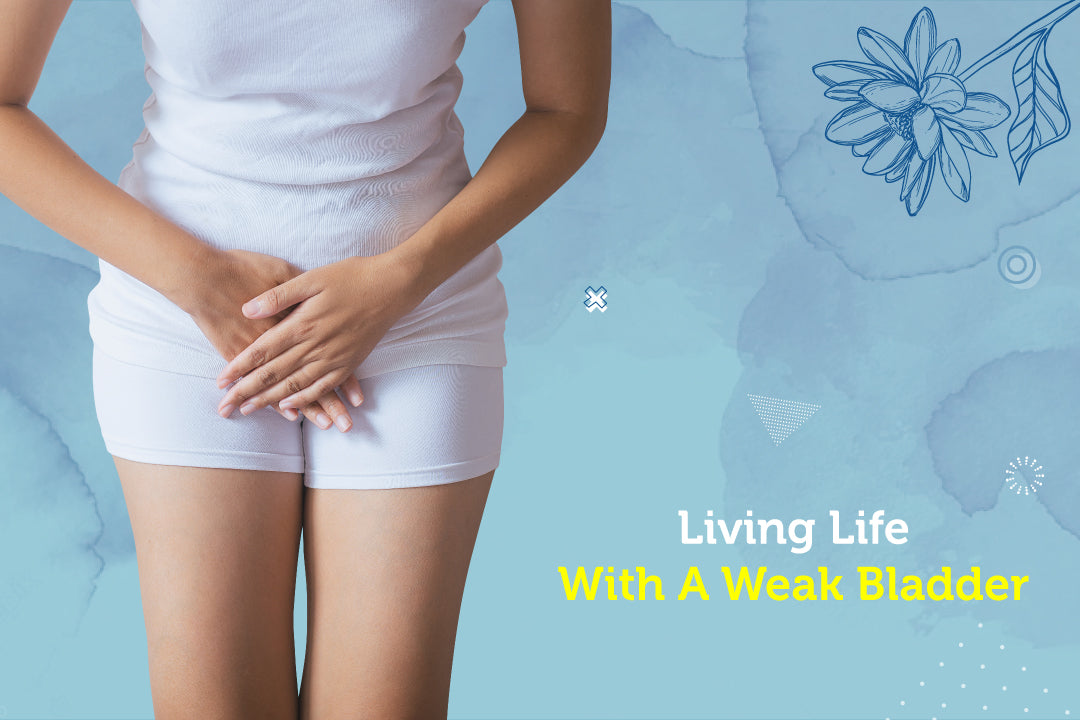Living Life With A Weak Bladder

Living Life With A Weak Bladder
Always feel like you need to take a trip to the restroom? Do you also feel a sudden urge to pee while in a meeting, or does your bladder wake you up in the middle of the night? It might be due to an Overactive Bladder (OAB). Though an OAB or a weak bladder can be difficult to deal with, one should not feel ashamed to accept it. 1 in every 10 people suffer from a weak bladder & does not talk about it. Weak bladder or OAB is sometimes treatable and is not a disease. Certain conditions such as neurological disorders, pregnancy, or specific medications increase the risk of developing an OAB. Valid treatment options are available & you can seek the help of your physician. Here are a few ways to manage a weak/leaky bladder before it overpowers you or your lifestyle:
Opt For Bladder-Scheduling Exercises: Schedule your peeing routine to train your bladder. You can also practice bladder-controlling exercises such as Kegels or squats. These exercises help tighten your pelvic floor muscles and can be done by both men and women. Kegels are best for people suffering from stress incontinence or who have weak pelvic muscles. It is a tried-and-tested technique to teach your body to control your bladder and eventually frequent washroom visits. A six-week training course may help get you accustomed and aware of your muscle movements while passing urine.
Quit Smoking: People suffering from a weak bladder or incontinence must completely stop consuming tobacco or tobacco products. Smoking hampers vascular muscles' functioning, thus impedes oxygen flow to various organs, including the bladder. Coughing due to smoking can sometimes put extra pressure on the bladder, contributing to stress incontinence.
Choose Your Drink: Some people cut out on water and drink less liquid, thinking this would help control a leaky bladder. However, the body needs water to function, and not consuming enough would only further add to the problem and cause dehydration. One should strictly refrain from drinking caffeinated or alcoholic beverages as they irritate the bladder muscles thus, causing spasms and urgent urination sensations. Beverages containing diuretic chemicals such as alcohol, tea, coffee, & soda should be avoided. These drinks act as a catalyst in stimulating the urinary tract & thus cause frequent peeing sensations.
Control Your Weight: If a person is overweight, there are more significant risks of developing an OAB or a Leaky Bladder. Having extra weight puts more pressure on the pelvic floor, making your bladder over-sensitive thus, leading to a more frequent desire to pee. Holding the urine for long in turn can lead to UTIs, Urinary Tract Infections.
Fiber-Rich Diet: Sometimes chronic constipation in individuals could also be an underlying cause of a leaky bladder or incontinence. An overfull bowel can stretch and weaken the muscles of the rectum or intestine over some time. This can trigger urinary incontinence or even make the watery stool up in the digestive tract leak out, leading to fecal incontinence.
Implementing a few lifestyle changes can help you strengthen your bladder, and pelvic muscles to improve an Overactive Bladder. To manage your condition better, click here to go through our Incontinence range: https://www.romsons.in/adult-diapers.html

